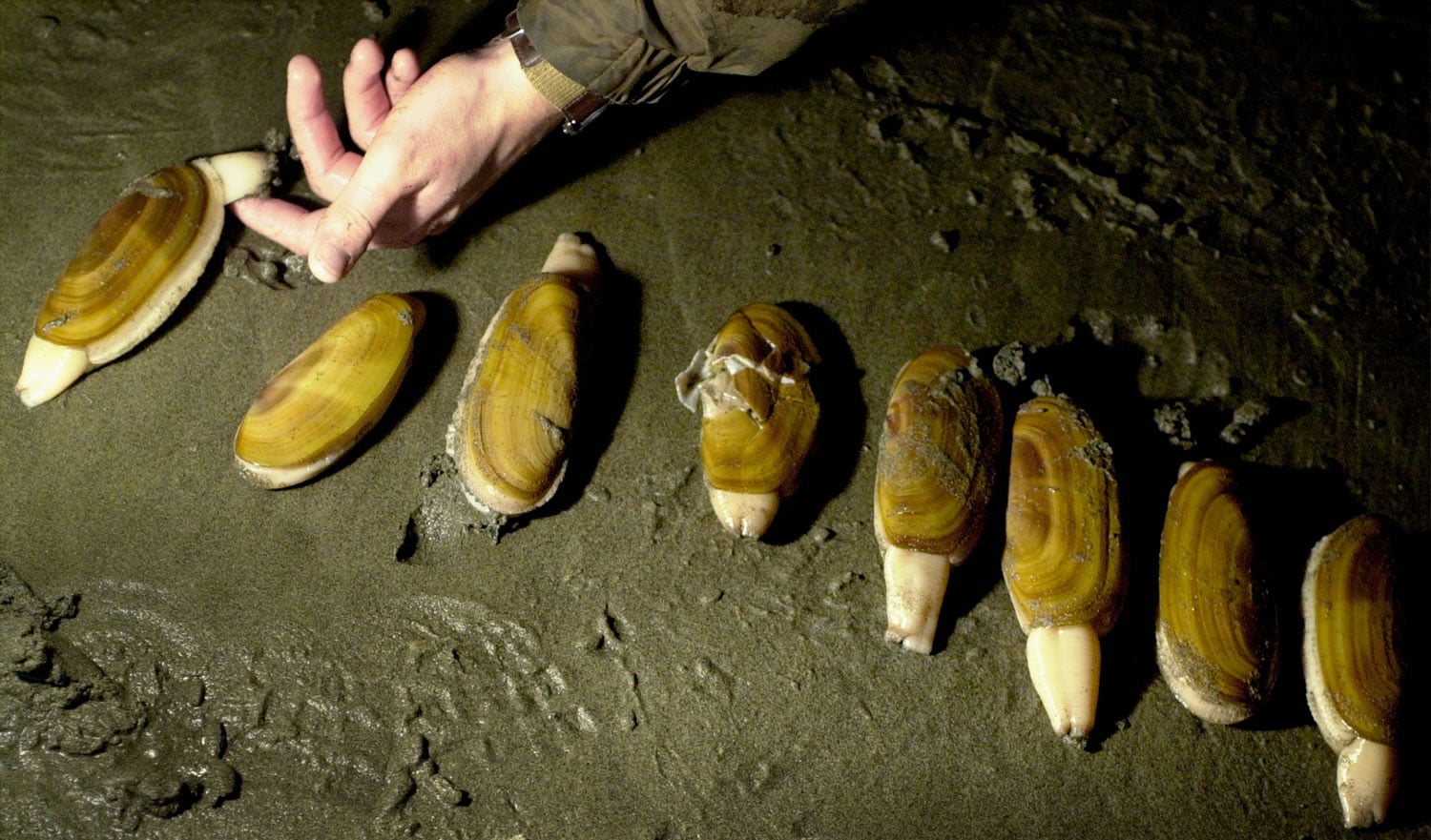LONG BEACH — Seven days of razor clam digging begin Thursday at Long Beach, the Washington Department of Fish and Wildlife announced Tuesday.
Digging also will be allowed Friday only at Copalis Beach.
The department confirmed the digs on those two beaches after marine toxin tests showed the clams are safe to eat. All other beaches remain closed to recreational razor clam digging.
Dan Ayres, coastal shellfish manager, said domoic acid levels have to drop to 20 parts per million in clams on the other beaches before they will open.
Domoic acid posed a problem for shellfish fisheries along Washington’s coast for much of 2015. The natural toxin produced by certain types of marine algae can be harmful or even fatal if consumed in sufficient quantities. Cooking or freezing does not destroy domoic acid in shellfish.
Low tides at coastal beaches will be: -0.4 feet, 4:49 p.m. Thursday; -0.7 feet, 5:35 p.m., Friday; -0.8 feet, 6:16 p.m., Saturday; -0.7 feet, 6:54 p.m., Sunday; -0.4 feet, 7:31 p.m., Monday; 0.0 feet, 8:05 p.m., Tuesday, and 0.5 feet, 8:30 p.m., Jan. 27.
The best digging is normally one to two hours before low tide.
Copalis Beach is being limited to one day to help ensure the beach will have openings in spring, Ayres said.
“Over the last few openings, we had a concentrated effort at Copalis Beach, where we’ve harvested one-third of annual quota already,’’ he said.
Diggers can take 15 razor clams per day and must keep the first 15 dug. Each digger’s clams must be in a separate container.
Diggers age 15 and older must have a 2015-16 fishing license. Licenses range from a three-day razor clam license ($9.70) to an annual combination fishing license ($55.35).




